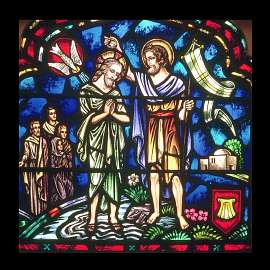
Joy in the Constant, Conscious Presence of Our Lord
Though you have not seen him, you love him. Though you do not now see him, you believe in him and rejoice with joy that is inexpressible and filled with glory,
1 Peter 1:8
Sanctifying grace is Jesus being the desire, ability, and power in me to respond to every life situation according to the will of God. Jesus is my desire for he works in me a hunger for holiness. Jesus is my ability for he enables me to make godly decisions and choices. Jesus is my power for he strengthens me to overcome the world, the flesh, sin, death, and the devil. Grace is the person, Jesus, living his life in and through me empowering me to live a righteous and holy life (2 Co. 9:8, 2 Cor. 12:1-10, Titus 2:11-14). Jesus living his life in me is the normal Christian life (1 Jn. 4:9).
The normal Christian is characterized by loving responses to ingratitude and indifference, even hostility, and is filled with joy in the midst of unhappy circumstances and with peace when everything goes wrong. The normal Christian overcomes in the battle with temptation, consistently obeys the laws of God, and grows in self-control, contentment, humility, and courage. Thought processes are so under the control of the Holy Spirit and instructed by Scripture that the normal Christian authentically reflects the attitudes and behavior of Jesus Christ. God has first place in life, and the welfare of others takes precedence over personal desires. The normal Christian has power not only for godly living but for effective service in the church. Above all, he or she has the joy of constant companionship with the Lord.
Robertson McQuilkin, comp., Free and Fulfilled: Victorious Living in the 21st Century (Nashville, TN: Thomas Nelson, 1997), xi.
The apostle Paul gives us his own definition of the [normal] Christian life in Galatians 2:20. It is ” no longer I, but Christ.” Here he is not stating something special or peculiar-a high level of Christianity. He is, we believe, presenting God’s normal for a Christian, which can be summarized in the words: I live no longer, but Christ lives His life in me.
God makes it quite clear in His Word that He has only one answer to every human need- His Son, Jesus Christ. In all His dealings with us He works by taking us out of the way and substituting Christ in our place. The Son of God died instead of us for our forgiveness: He lives instead of us for our deliverance. So we can speak of two substitutions-a Substitute on the Cross who secures our forgiveness and a Substitute within who secures our victory. It will help us greatly, and save us from much confusion, if we keep constantly before us this fact, that God will answer all our questions in one way only, namely, by showing us more of His Son.
Watchman Nee, The Normal Christian Life (Fort Washington, PA: Christian Literature Crusade, 1985), 12.









